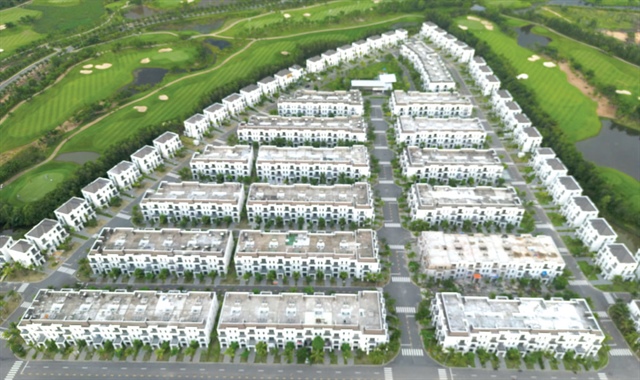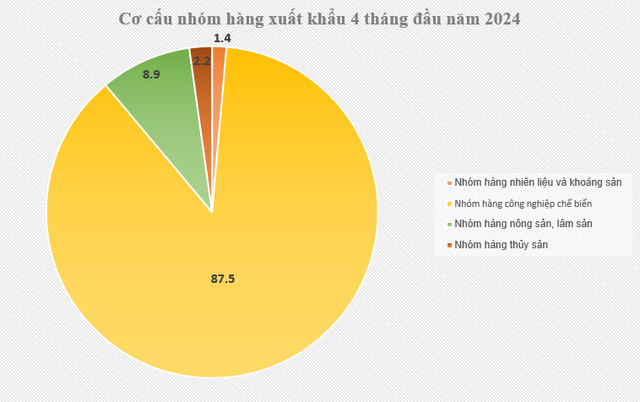
The real estate market is likely to be “tightened,” mostly from the supply side. Photo: H.P |
From the next Lunar New Year, all three laws, including the 2023 Residential Law, the 2023 Real Estate Business Law, and the 2024 Land Law, will take effect. However, preparations and market projections with the presence of new regulations can begin now.
Tightening in the right places
Considering the context of the market, it is not difficult to understand why the laws are tending to “tighten” the real estate market, mostly from the supply side.
Firstly, even though 32 cases are listed as “land revocation for economic and social development for national and public interests”, Article 79 of the Land Law 2024 has excluded the case where the State revokes land to allocate to investors to implement real estate projects as proposed and discussed in previous draft versions. This means that the access to land from the source, with state land prices, can be blocked from group interests and even “rent-seeking.” Land supply to the real estate market will become scarcer, which can have some impact on future property prices. In that context, investors who already have available land funds will have an advantage after a year.
Meanwhile, capital mobilization into the market from the future-formed apartment trading method is also intensively controlled. The 2023 Real Estate Business Law has limited the deposit for buying a house to not exceed 5% of the selling price. The amount investors are required to prepay for the first installment must not exceed 30%, and not exceed 70% of the contract value for subsequent installments. The maximum payment will be 95% of the contract value if the homebuyer has not been granted a separate “red” book. Moreover, the requirement for the capital ownership of real estate business enterprises has been officially legalized at 15% or 20% of the total investment capital, depending on the size of the project.
Other constraints in real estate business must also be complied with in a year. For example, businesses are required to fully disclose information about real estate before entering the market (such as project information, planning, property type, etc.), to use the corresponding contract form, and specially to correctly record the actual transaction price in the contract.
Due to the prolonged impact of the Covid-19 pandemic and the market’s unsustainable nature, the real estate market has been facing difficulties after a long stagnation. However, the desire to escape the state of stagnation certainly does not mean overlooking the unhealthy signs of the market. That is the reason why the laws are being tightened, making the market more regular in the long run.
Activating in the right spots
On the other hand, there are many regulations that contribute to activating and “loosening room” for the market. The 2023 Real Estate Business Law has listed many types and detailed conditions for each type of real estate to be put into business. Notably, project investors of social housing from their own capital, not using the budget, are facilitated and enjoy many incentives. The eligibility to buy social housing is no longer limited to residency requirements as at present.
|
Land supply to the real estate market will become scarcer, which can have some impact on future property prices. Meanwhile, capital mobilization into the market from the future-formed apartment trading method is also intensively controlled. |
Similarly, the classification of overseas Vietnamese into those with Vietnamese nationality and those without Vietnamese nationality (with roots) and introducing additional benefits for the first group also greatly contribute to stimulating the real estate market and creating other positive impacts in terms of economics and society.
In response to the lively opinions in and outside the market through multiple different meetings, the National Assembly has recognized the non-mainstream market and does not require small-scale individual real estate businesses to establish businesses. However, real estate brokerage activities must be regular, professional, and not maintain teams of “land brokers” operating freely as before. The regulation that payment in cash is not allowed for remuneration and commission in real estate brokerage also contributes to building the regular and professional nature of the market.
Notably, from discussions about the requirement to guarantee handover in apartment purchases, which the writer has also contributed opinions to, the 2023 Real Estate Business Law not only relaxes requirements and procedures but also officially stipulates that customers can choose whether or not to have a guarantee for their financial obligations with the investor. In return, the house price can be reduced correspondingly with the guarantee fee, as applied by some investors. However, if customers still request a guarantee letter, the investor can only ask customers to pay the contract after providing them with the bank guarantee letter.
Developing the market for agricultural land use rights is also an important requirement in amending the Land Law this time. The official provision of expanding the limit for receiving the transfer of special land use rights is significant for the huge demand for land for large-scale agricultural production.
There is still an “entanglement”
The current regulations do not have a uniformity about the land use rights and home ownership of foreigners (foreign individuals). Unlike the 2003 Land Law, the 2013 Land Law does not recognize the land use rights of this group. However, the 2014 Housing Law still allows foreign individuals to buy and own houses (both apartments and individual houses).
Problems arise when determining the rights and obligations of foreign individuals regarding the land under common use in apartment buildings in relation to the rights and obligations of other apartment buyers. In fact, foreigners are still using the land regardless of their rights to use that common land.
The Land Law 2024 continues the approach of the Land Law 2013 and the 2023 Housing Law by allowing foreign individuals to own houses in Vietnam. This means that the aforementioned entanglement still remains.
There is still a year to prepare for the implementation of the above-mentioned laws. Reality is that legal frameworks affecting the real estate market are not merely laws. In other words, regulations and guidance from the Government and industry management agencies have a great and direct impact on market changes. Let’s wait and prepare…
Truong Trong Hieu (University of Economics and Law, Vietnam National University HCMC)





































